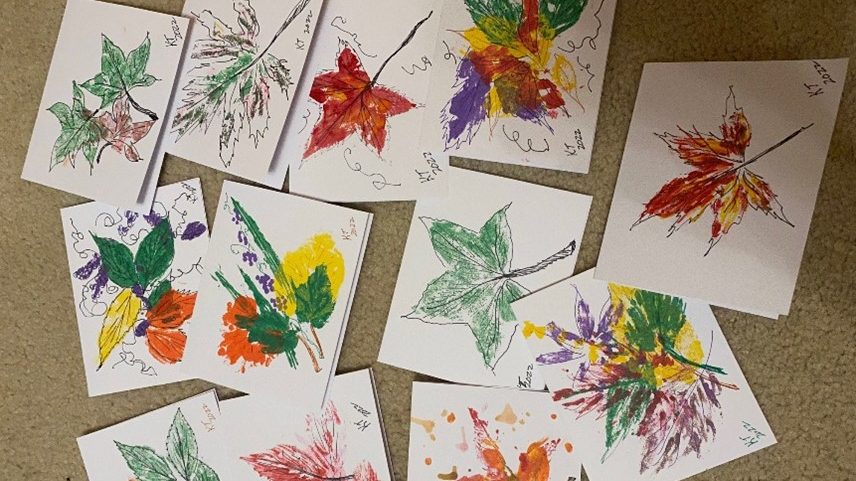Innovation and creativity are not optional in today’s fast-changing world. Stay the same and fall behind. Fail to innovate and become obsolete.
The imperative for innovation and reinvention holds true for our services, products, and processes.
It also holds true in our professional lives as well. Fail to try and learn new things at the risk of becoming a dinosaur. Stay abreast to remain viable.
Entrepreneurship, innovation, creativity, and “thinking out of the box” may be admired, but my observations tell me that far too many of us are unwilling to pay the price. At the heart of innovation and entrepreneurship is the creative process. And therein lies the problem.
- In a world that values efficiency, the creative process is wildly inefficient.
- In organizations that want order, creativity is messy.
- In environments that want speed, innovating can be painfully slow.
Let me illustrate with a simple personal example.
As I scrolled through Pinterest, a post that showed beautiful handmade note cards caught my eye. They were simple and striking. They only required blank note cards (I had a stack), some paint pens (also in hand), and fall leaves. The demo video showed how, in mere seconds, paint was applied to the leaves, leaves were pressed into the cards, and voila! Art emerged!
 So on a Saturday morning, I gathered up my materials and cleared a spot at the kitchen table. My first attempt was an abject failure as the paint pen ripped the leaves to shreds. Result: a toss in the trash can.
So on a Saturday morning, I gathered up my materials and cleared a spot at the kitchen table. My first attempt was an abject failure as the paint pen ripped the leaves to shreds. Result: a toss in the trash can.
On the second attempt, I managed to apply the paint without destroying the leaf but immediately realized that the leaf was far too big for the note card. Result: another toss in the trash can
I regathered smaller leaves and, on my third attempt, was careful to have the paint freely flowing before applying it to the leaf. Feeling more confident, I pressed the paint-filled leaf into the note card. Result: a colorful blob that looked nothing like a leaf and another notecard discarded.
Sixty minutes in with three failed attempts. My vision of a quick project yielding amazing results was demolished.
At that point, I decided to abandon the project and go for a hike, with the plan to clean up the mess upon return.
On the hike, I found several “right-sized” leaves in interesting shapes. I collected them “just in case.” And so upon my return, I thought it would hurt to give it another go before I cleaned up the entire bloody mess.
There were a few more failed attempts. And then I produced a decent note card. And another that I wouldn’t be embarrassed to send. Figuring that I had little to lose, I painted and pressed my remaining leaf collection, resulting in 10 note cards. I let them dry as I cleaned up = feeling better, but not terribly successful.
I came very close to tossing the lot in the can – when I had an idea. What if I added some inkwork to the existing cards? I did – and the mediocre cards got better. Better enough that I added my initials and the date. Better enough that I’ve actually sent two of them to friends without embarrassment.
My story is a very simple example of the hard realities of the creative process. Yet it mirrors the creative process as we attempt to improve our products and services, find new ways to serve clients and customers, or improve internal operations. And it also is indicative of what happens with start-ups and other creative endeavors.
Creativity, in both the traditional and business sense, is best seen as a process with some common attributes. And those attributes have nothing to do with speed, efficiency, perfection, or optimization:
- There is gross incompetence at the start. You will make mistakes, yet each can lead you closer to what you want.
- There will be messy missteps. Some work (or ideas) will be totally unusable. You’ll burn through time, effort, money, and materials.
- You will get frustrated. It will seem it should be easier than this. You’ll wonder why you can’t figure this out.
- Persistence in the face of an apparent lack of process matters. It’s tempting to throw in the towel, yet often that is when you might be close to the breakthrough you seek.
Those good with innovation Learn to love the process, even the hard stuff. They embrace doubt. They understand that struggle, rejection, and even failure are part of the process. And while they might not love every part of the process, they are willing to hang in there through the incompetence, the failed attempts, and the pressure (from themselves or others) to produce. For they understand that something will come of their efforts. It may be progress, knowledge, strength, and/or resilience. There may (or may not) be a breakthrough, but that is also part of the process. For they know that the actual end result is always unknown.
One of the books that I highly recommend on the creative process is Breakthrough by Todd Mitchell.
I’m curious: What are you in the process of creating? At work? In your life? And what are your observations about the creative process?





